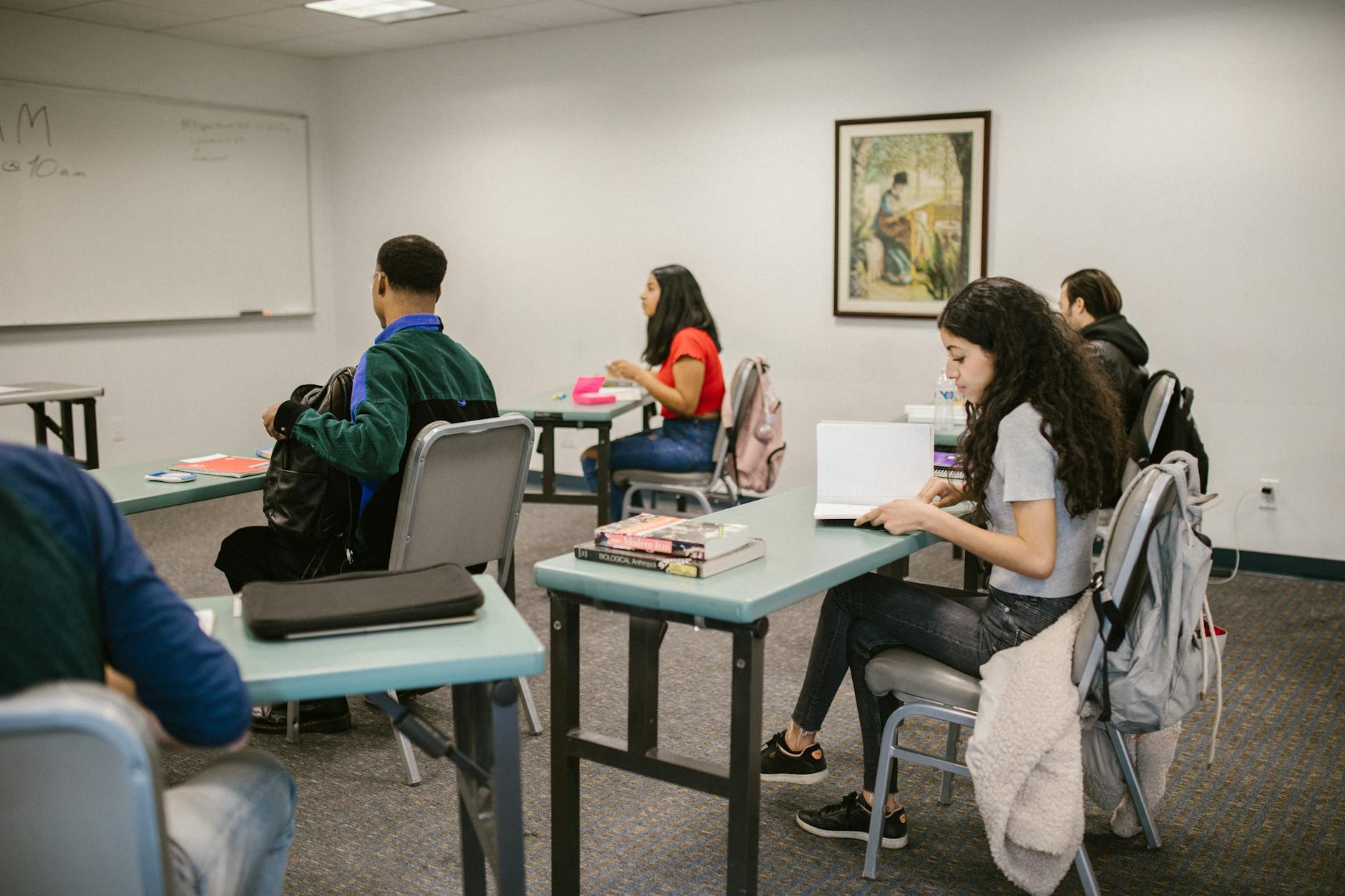How to Enhance Aged Care Skills in Australia Without Interrupting Daily Operations

Identifying Skills Gaps
Evaluating Current Competency
In my experience managing aged care facilities, I've found it essential to regularly evaluate the competencies of staff for effective care delivery. Attending Brisbane CBD aged care conferences allows me to stay informed of the latest industry standards. This, in turn, guides a comprehensive assessment of our team's strengths and areas for improvement. One productive method involves conducting skills audits, where we match existing capabilities against the competencies required by the latest aged care courses. Surveys and performance reviews also play a critical role in this evaluation process. These help identify which staff members may benefit from new or advanced training, such as cert 3 childcare programs essential for integrated care environments.
Consulting Industry Standards
Staying aligned with industry standards is not just a regulatory necessity but a commitment to excellence. I make this a priority by engaging with accredited training programs at TAFE Queensland. These sessions are valuable in highlighting any existing gaps between current practice and best practice guidelines. In this way, ongoing consultation with industry standards informs my strategies for staff competency improvement.
Prioritizing Skill Development
Once skill gaps have been identified, it's crucial to focus on the most critical areas that will enhance care quality. For this, prioritisation is key. Strategies may include enrolling staff in focused training initiatives such as 'Cert 3 in Individual Support', which has shown significant impact in boosting team competence. Additionally, integrating professional workshops at Royal Brisbane and Women's Hospital into our development plans helps streamline skills enhancement without disrupting daily operations.
Flexible Training Options
Choosing Online Courses
Selecting the right online courses can be a game-changer for aged care facilities seeking to enhance staff competency without disrupting daily operations. For instance, community services courses offer a versatile approach, providing valuable skills and knowledge that align with industry standards. With numerous options available, it’s crucial to choose accredited programs, like those offered at TAFE Queensland, ensuring staff receive quality education recognised by professional bodies. This approach not only elevates staff skills but also keeps them abreast of the latest regulations in aged care.
Incorporating In-House Workshops
Bringing training in-house allows for customised learning experiences tailored to specific organisational needs. In-house workshops provide an interactive platform where staff can engage directly with the content, fostering collaboration and immediate feedback. By utilising resources from local institutions, like professional workshops at the Royal Brisbane and Women's Hospital, you can ensure that your team benefits from expert knowledge tailored to current industry demands. This method supports the development of a cohesive team well-versed in aged care best practices.
Utilizing Microlearning Techniques
Microlearning is an increasingly popular training method, designed to deliver small, easily digestible segments of information that can be immediately applied. It offers aged care professionals the flexibility to learn at their own pace without overwhelming them with information. Implementing strategies such as short, focused learning modules on vital topics like child care courses keeps staff engaged and promotes continuous learning. By adopting this method, facilities can enhance the overall educational experience and ensure that each team member remains proficient in their roles.
Implementing Ongoing Education
Creating a Learning Schedule
In my role as an aged care manager, crafting a well-structured learning schedule is vital for enhancing staff competency. It involves setting clear timelines for training programs such as 'cert 3 in individual support'. This certification serves as a foundation for employees to improve their care-giving skills at TAFE Queensland. Allocating specific days for training while balancing daily responsibilities ensures continuous learning without disrupting operations.
Encouraging Team Collaboration
Fostering a collaborative environment is crucial for effective education. I encourage my team to participate in group discussions and projects related to their coursework. This not only facilitates knowledge sharing but also builds a supportive network. Regular brainstorming sessions during lunch breaks can be an effective strategy, as they allow time for team members to discuss case studies or new ideas obtained from accredited childcare courses online.
Leveraging Peer Mentoring
Peer mentoring is an invaluable resource in ongoing education. By pairing experienced staff with newcomers, I ensure that practical experience complements theoretical knowledge. Workshops at locations like the Royal Brisbane and Women's Hospital offer insights that can be shared through mentorship, bridging the gap between learning and real-world application. This approach is effective in maintaining industry standards and boosting confidence across the team.
Monitoring Progress
Setting Achievable Benchmarks
Setting clear benchmarks is essential for tracking the progress of aged care training initiatives. As a healthcare manager in Brisbane, I find it beneficial to align these benchmarks with both organisational goals and the skill development needs of the team. Benchmarks can be role-specific and include measurable outcomes that assess improvement over time. For instance, defining competencies such as improved patient interaction or more efficient care delivery can provide tangible targets for the team to aim for.
Collecting Feedback Effectively
Gathering feedback from staff is vital for understanding the effectiveness of training programs. I recommend using both qualitative and quantitative methods. Surveys can be an efficient way to gather broad feedback, while face-to-face meetings allow for more nuanced discussions. Encouraging staff to share their experiences and suggestions can spur ongoing improvements and enhance the training experience. This feedback loop helps create a culture of transparency and continuous improvement, aligning with the ethos of the Brisbane CBD aged care conferences renowned for professional development.
Adjusting Training as Needed
Lastly, it’s crucial to remain adaptable when implementing training programs. The landscape of aged care is continually evolving, and training must be updated to reflect current industry practices and standards. If feedback indicates gaps or dissatisfaction, be prepared to adjust the curriculum or explore new resources. This might mean integrating accredited training programs from institutions like TAFE Queensland to bolster specific skills or competencies. Keeping the lines of communication open ensures that the training is responsive to the needs of both staff and residents, ultimately leading to better care outcomes.
Addressing Challenges Effectively
Appreciating Individual Needs
It's essential to recognise the distinct learning requirements of each staff member in our healthcare facilities. A one-size-fits-all approach can lead to limiting adoption of innovative practices. Utilising tools like individual assessments during Brisbane CBD aged care conferences can aid in tailoring personal development plans. This bespoke strategy ensures no one is left behind and everybody can contribute meaningfully to the team's objectives.
Highlighting the Importance of Soft Skills
In aged care, soft skills are just as crucial as technical prowess. Ignoring these can result in staff who are technically proficient but lack empathy in client interactions. Embedding soft skills training through accredited programs at TAFE Queensland guarantees our teams are not only effective but also compassionate caregivers. Skills like communication, teamwork, and adaptability should feature prominently in our curriculums.
Staying Updated with Industry Trends
Failing to continually update our knowledge base is a pitfall that can have far-reaching consequences. Healthcare regulations and best practices evolve rapidly, as seen in the dynamic workshops at Royal Brisbane and Women's Hospital. Our training programs must reflect these changes to remain relevant. Establishing a routine review process ensures our methods and knowledge stay contemporary, equipping teams to tackle new challenges efficiently.
By navigating these common mistakes, we empower our workforce to deliver superior care while fostering a progressive and supportive work environment. This approach enhances the overall integrity and reputation of our services in the aged care sector.


